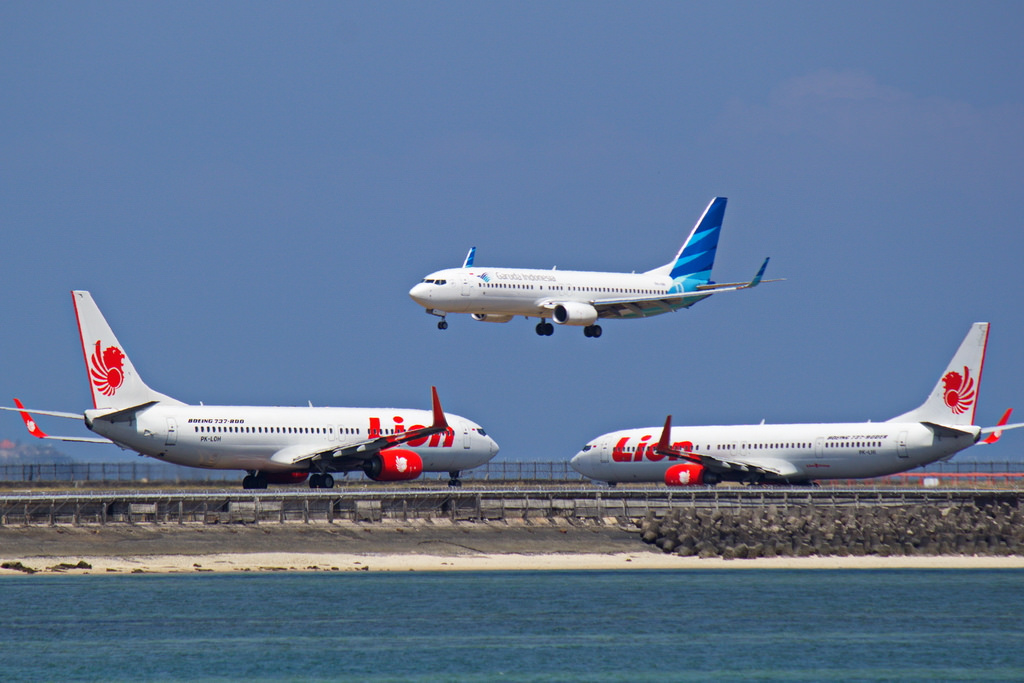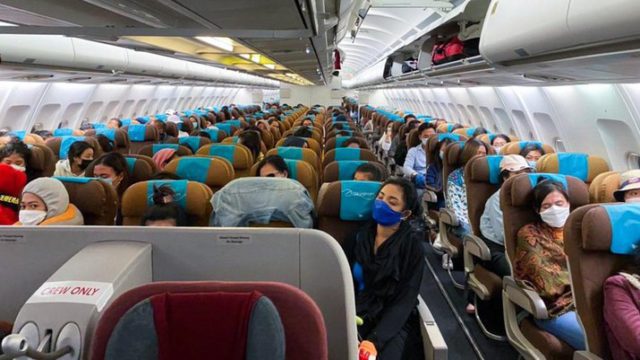Detik.com reports that the Indonesian government has removed the maximum passenger load limit of 70% on commercial aircraft intended to limit the spread of COVID-19. Permission for Indonesian airlines to again sell 100% of their available seat is contained by Circular Memorandum No. 3 of 2021 issued by the Minister of Transportation.
Adita Irawati, a spokesperson for the Ministry of Transportation, defended the decision to allow 100% passenger loads. The government decided after consultation and agreement from the National Task Force for the Mitigation of COVID-19.
Adita said a chief consideration in allowing fully loaded aircraft is the strict prerequisites now in place for either a negative PCR Swan Test or a non-reactive Rapid Antigen Test.
The Ministry spokesperson continued, saying that the law requires all air passengers traveling to Bali’s Ngurah Rai International Airport to present a “negative” PCR Swab Test performed 2 x 24 hours before departure.
Alternatively, Bali-bound passengers can present a non-reactive Rapid Antigen Test performed 1 x 24 hours before departure.
Meanwhile, air passengers traveling from Bali to other Indonesian destinations must present proof of a negative PCR Swab Test performed 3 x 24 hours before travel or a non-reactive Rapid Antigen Test undertaken 2 x 24 hours before departure.
And while aircraft loads can now be 100%, passengers are obligated to wear a mask for the plane trip’s entire duration. All passengers are also prohibited from communicating by telephone during the trip.
Air passengers cannot eat or drink on trips of less than 2 hours duration, with exceptions made for those requiring medication.
Airplanes flying in Indonesia are now required to install High-Efficiency Particulate Air Filters (HEPA) to remove bacteria and viruses from cabin air systems. The HEPA system recycles all the highly filtered air in the passenger cabin once every two minutes during a flight.
Finally, Adita also pointed out that passenger load limitations have been removed from commercial plane movements in several countries worldwide. Moreover, Adita said studies undertaken by many international aviation agencies had not uncovered instances of widespread contagion of COVID-19 on commercial passenger flights.
“Up until this time, flights in many countries are not imposing capacity limitations, and studies performed by the International Air Transport Association (IATA), the International Civil Aviation Organization (ICAO), and even the Federal Aviation Administration (FAA) – all say there is little evidence of COVID-19 contagion to passengers on commercial flights,” said Adita.



